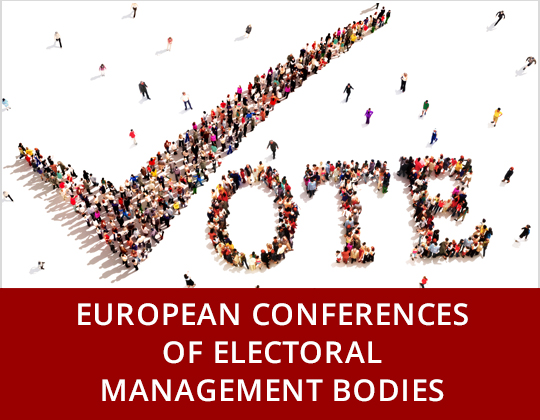Mr Barrett's speech
We are all aware of the value of events like this for contacts among national bodies, even in the online format.
We all had an overdose of elections from the US last week. As we re-adjust after that we can sit back and take a long view of developments.
My task is to do an overview of developments to identify the big continuing problems and see some good practices in our countries.
My working tools will be the two excellent surveys from German expert Michael Krennerich. One in 2006 and an updated version of 2020.
If you read these documents you might take different messages.
I will compare the two to identify the big subjects which are still with us, point out some good practices and if time allows to identify the big current themes.
In 2006 it was perceived that the states in Central & Eastern Europe were more advanced in their election codes and structures as they had been upgraded in the 1990s. eg EMBs gender and the expectation of a coherent code. Now many western states have caught up.
As regards EMBs the 90s model was a large autonomous body which ran the elections directly and it probably had three levels. Now we recognise that the electoral body might not run the election directly but supervise how it is run by a combination of agencies or at a local level. In 2006 governance in EMBs was a major issue but now it is well understood. While some political party involvement is valuable but not a straight party split as this can lead to politicisation.
Gender.
Here there has been some progress at least in the legal framework. The example of Moldova ; women candidates require fewer signatures to get on the ballot paper. Some states reduce the funding of a party which does not have a balanced ticket.
The single code. Now I think we recognise that it is not necessary to have the one code for its own sake. It is about accessibility. The one big code can be a problem if it is too complex and tries to provide for every eventuality. There is a need for adaptability and interpretation.
The big challenges in 2006 which are still problematic in all our countries are
Registration of voters. There are active systems and now more usually passive systems. Both are dependent on data bases even if our systems are largely paper based, so there is a danger of becoming a hostage to whoever controls those resources, and at risk to IT problems and cyber attacks. If there is a perception of cyber vulnerability it undermines trust in the register.
In some of our states we had local supervision by a local authority, with local knowledge and someone knocking at the door. That used bring an advantage which we are losing.
In many states it is a fact that people who have emigrated remain on the register for too long afterwards.
One of the values of the register is to allow stakeholders to see if it is accurate. Privacy v transparency. Now you will have restrictions on who can see it and what can be done with it.
Party and campaign financing. Growing regulation of public and private funding of parties and of campaigns.
Public Funding is used as a tool to promote best practice in areas such as gender, internal party democracy and policy development. Restrictions on foreign donations, now harder to justify within the EU. Corporate donations. Third-party campaigns. Complexity of compliance becomes a trap and makes parties look like public agencies. Difficult for new or small parties. Again privacy v transparency. Transparency is valuable but it might discourage donors.
Interference by abuse of administrative resources. In 2006 identified as government interference ie the incumbent but the reality is not always so direct. Now more awareness of this and it is reflected in prohibitions in many of our states. Mr K in his conclusions of 2020 puts this together with misuse of incumbency and misuse of state positions. There has been substantial work on this issue by the Venice Commission and by the Congress on Regional and Local Self-Government.
Current big issues which we all have to address
The link is trust
Cyber-security and cyber interference.
Voter education and awareness.
Stability. Too many changes of direction.
The cyber threat is to the operation of the election, the hardware, but also to the campaign. There is a growing anxiety about dis-information and propaganda on social media.
States now realise that a major part of the answer is education and awareness.
A related trust problem is the politicisation of the election law. Tendency to argue that the politics are problematic because the electoral system is wrong. The election law becomes a bigger political issue than it should be. If there is a perpetual campaign to change the system then stability is lost and people do not trust the process.
The overall message from a comparison between these reports is positive. In most of our countries our electoral laws and institutions support good electoral processes, but that is not sufficient to provide a functioning democracy. The fundamental rights context in the state is crucial as it is the environment which allows electoral rights to be exercised and democracy to flourish.




